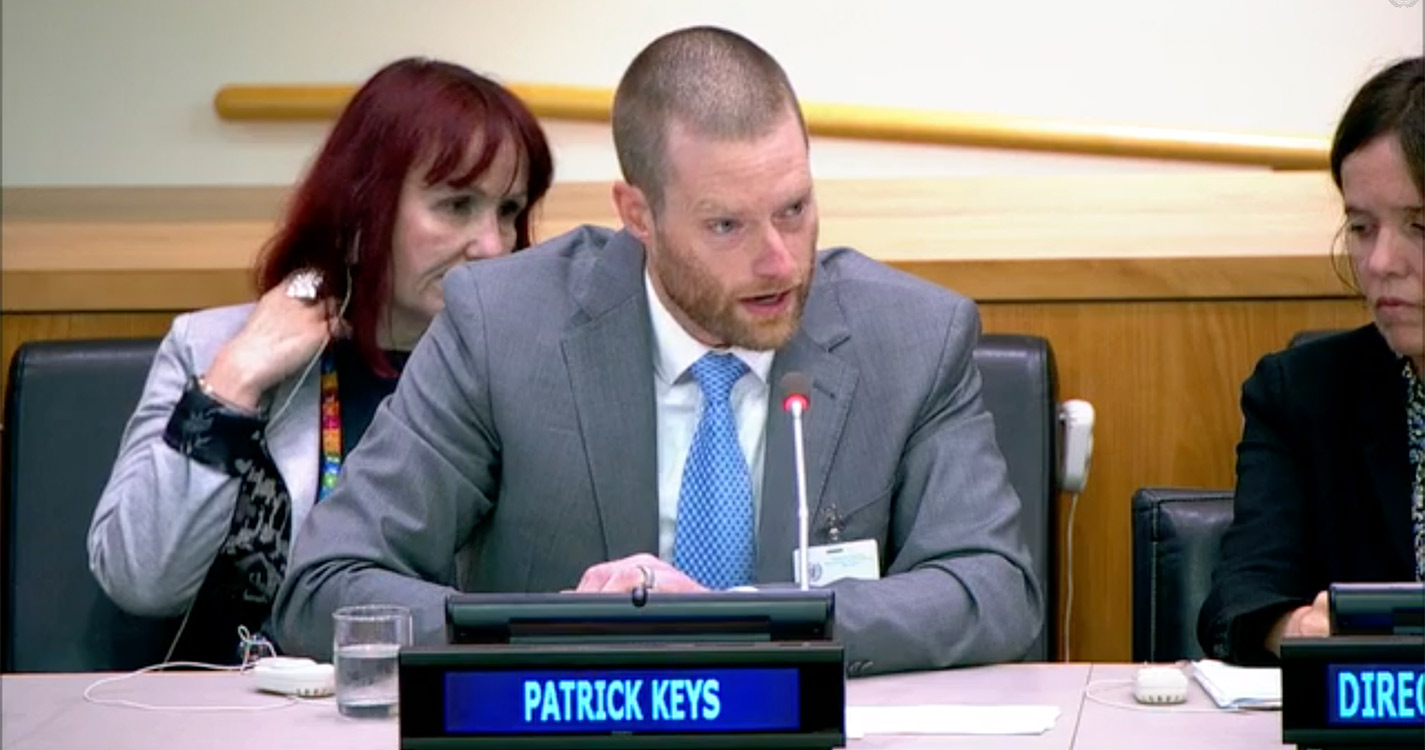Two weeks ago, Pat Keys ’05 spotted an email inviting him to speak at a conference.
As a research scientist at Colorado State University, he receives dozens of these a week. But this one was different — it claimed to be from the United Nations.
Thinking it was spam, he forwarded it to a colleague and noted its cleverness. As it turns out, the email was no joke.
Keys’ expertise and work at the School of Global Environmental Sustainability at CSU, had earned him a spot as a keynote speaker at the second committee of the U.N.’s General Assembly in New York City. One of six committees, this one considers sustainable development, globalization and other issues through the lens of finance and the economy.
For an honor of this scale, Keys was chosen early in his career. Past speakers generally have been senior scientists or economists, so he was incredibly intimidated. However, he also viewed the invitation as “a chance to synthesize a lot of things I never put to words, and approach it not just as a scientist, but as a person who has a stake in the planet, who has two kids I’m thinking about all of the time and for which I want to see a better world.”
The final product was a 15-minute address that explores whether a just and equitable future is still possible in light of climate change, global wealth inequality and the Anthropocene — a word many scientists use to describe the current geologic age, viewed as a period when humans have exercised the greatest influence on climate and the environment. Hundreds of representatives and delegates from nearly every country in the world attended the speech.
The global perspective that informed Keys’ address and has guided his career started when he was a student at Willamette, where he managed to travel abroad every year.
“Willamette did a tremendous thing in terms of opening my eyes to the world and thinking about it in different ways,” he said. “I think that’s been instrumental in how I’ve conducted my career to this point.”
Keys based his address on talks with his friend Lopaka Purdy ’05, material from his recent work in the journal Nature Sustainability and even a presentation he gave to local fifth graders. There’s value in explaining topics at different levels of understanding to eliminate confusion, and if fifth graders can grasp nonlinear systems, U.N. delegates can grasp it, too, he said.
He feels the address was positively received. Delegates from Morocco, Eritrea and Ecuador contacted him to continue discussion as the committee moves forward developing resolutions to present before the General Assembly.

